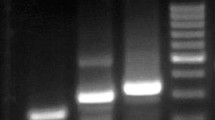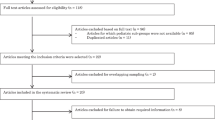Abstract
Within the Asian populations, Indian patients had been reported to require higher warfarin dose compared with the Chinese and Malay patients, and this could not entirely be explained by cytochrome P450 (CYP)2C9 gene variants. Genetic variants of vitamin K epoxide oxidase reductase complex subunit 1 (VKORC1) has been well established as one of key determinants in the different responses of warfarin amongst patients. Adult patients who attended an anticoagulation clinic with stable INR were recruited. VKORC1 and CYP2C9 genotype were sequenced, and clinical characteristics were assessed. A total of 91 Malays, 96 Chinese, and 46 Indian patients were recruited. The mean age was 55 years and 51.5% were males. The mean dose of warfarin for all patients was 3.7 mg, and the mean daily dose of warfarin was significantly higher in Indians compared with the Chinese and Malay patients, 4.9 versus 3.5 and 3.3 mg, respectively (p < 0.001). VKORC1 GG genotype was more commonly seen in Indian patients. The mean warfarin dose in patients with GG genotype required a significant higher warfarin dose compared with those with AG and AA genotype (4.9 vs. 3.7 vs. 3.1 mg, respectively; p < 0.001). CYP2C9*2 and *3 is associated with a lower maintenance dose, 2.9 versus 3.7 mg in CYP2C9*1; p < 0.01. In multivariate analysis, age, ethnic groups, and genotypes had a significant influence on the required warfarin dose. In conclusion, VKORC1 and CYP2C9 polymorphism contribute to the difference dose requirement amongst the patients but other additional possible factors may play a role in the Indian race.
Similar content being viewed by others
References
Aquilante CL, Langaee TY, Lopez LM, Yarandi HN, Tromberg JS, Mohuczy D et al (2006) Influence of conagulation factor, vitamin K epoxide reductase complex subunit 1, cytochrome P450 2C9 gene polymorphisms on warfarin dose requirement. Clin Pharmacol Ther 79:291–302
Beyth RJ, Quinn L, Landefeld CS (2000) A multicomponent intervention to prevent major bleeding complications in older patients receiving warfarin. A randomised controlled trial. Arch Intern Med 133:687–695
Bodin L, Verstuyft C, Tregouet DA, Robert A, Dubert L, Funck-Brentano C et al (2005) Cytochrome P450 2C9 (CYP2C9) and vitamin K epoxide reductase (VKORC1)genotypes as determinants of acenocoumarol sensitivity. Blood 106:135–140
Dang MT, Hambledon J, Kayser SR (2005) The influence of ethnicity on warfarin dosage requirement. Ann Pharmacother 39:1008–1012
D’Andrea G, D’ambrosio DG, Di Pema P et al (2005) A polymorphism in the VKORC1 gene is associated with an interindividual variability in the dose-anticoagulant effect of warfarin. Blood 105:645–649
Douketis JD, Foster GA, Crowther MA, Prins MH, Ginsberg JS (2000) Clinical risk factors and timing of recurrent venous thromboembolism during the initial 3 months of anticoagulant therapy. Arch Intern Med 160:3431–3436
Fihn SD et al (1993) Risk factors for complications for chronic anticoagulation. A multicenter study. Warfarin optimised outpatient follow up study group. Ann Intern Med 118:511–520
Gage BF, Eby C, Johnson JA, Deych E, Reider MJ, Ridker PM, Milligan PE, Grice G, Lenzini P, Rettie AE, Aquilante CL, Grosso L, Marsh S, Langaee T, Farnett LE, Voora D, Veenstra DL, Glynn RJ, Barrett A, McLeod HL (2004) Use of pharmacogenetics and clinical factors to predict the maintenance dose of warfarin. Thromb Haemost 91:87–94
Gage BF, Eby CS (2003) Pharmacogenetics and anticoagulant therapy. J Thromb Thrombolysis 16:73–78
Geisen C, Watzka M, Sittinger K et al (2005) VKORC1 haplotypes and its impact on the inter-individual and inter-ethnic variability of oral anticoagulation. Thromb Haemost 94:773–779
Gan GG, Goh KY, Chong HT, Pang KW (2003) Racial background is one of the determinant factors in the maintenance dosage of warfarin. Int J Hematol 78:84–86
Gan GG, Ku CS, Phipps M, Sangkar JV, Teh A (2004) Genetic polymorphism in warfarin maintenance doses—letter to editor. Int J Hematol 80:295–296
Gurwitz J, Avorn J, Ross-Degnan D, Choodnovskiy I, Ansell J (1992) Aging and the anticoagulant response to warfarin therapy. Ann Intern Med 116:901–904
Jonas DE, McLeod HL (2009) Genetic and clinical factors relating to warfarin dosing. Trends Pharmacol Sci 30:375–386
Kamali F (2006) Genetic influences on the response to warfarin. Curr Opin Hematol 13:357–361
Lal S, Sandamaraj E, Jada SR, Kong MC, Lee LH, Goh BC, Lee SC, Chowbay B (2007) Influence of APOE gene and VKORC1 haplotypes on warfarin requirements in Asian patients. Br J Clin Pharmacol 65:260–264
Lee CR, Goldstein JA, Pieper JA (2002) Cytochrome P450 2C9 polymorphisms: a comprehensive review of the in vitro and human data. Pharmacogenetics 12:251–263
Lee MTM, Chen CH, Chuang HP, Lu LS, Chou CH, Wen MS et al (2009) VKORC1 haplotypes in five East Asian populations and Indians. Pharmacogenomics 10:1209–1216
Lee MTM, Chen CH, Chou CH, Lu LS, Chuang HP, Chen YT et al (2009) Genetic determinants of warfarin dosing in the Han-Chinese population. Pharmacogenomics 10:1905–1913
Lee SC, Oldernburg J, Chong PY, Rost S, Guo JY, Yap HL et al (2006) Interethnic variability of warfarin maintenance requirement is explained by VKORC1 genotype in an Asian population. Clin Pharmacol Ther 79:197–205
Li T, Lange LA, Li X, Susswein L, Bryant B, Malone R, Lange EM, Huang TY, Stafford DW, Evans JP (2006) Polymorphisms in the VKORC1 gene are strongly associated with warfarin dosage requirements in patients receiving anticoagulaition. J Med Genet 43:740–744
Limdi NA, Weiner H, Goldstein JA, Acton RT, Beasley TM (2009) Influence of CYP2C9 and VKORC1 on warfarin response during initiation of therapy. Blood Cells Mol Dis 43:119–128
Lindh JD, Holm L, Andersson ML, Rane A (2009) Influence of CYP2C9 genotype on warfarin dose requirements—a systemic review and metaanalysis. Eur J Clin Pharmacol 65:365–375
Marsh S, King CR, Porche-Sorbet RM, Scott-Horton TJ, Eby CS (2006) Population variation in VKORC1 haplotype structure. J Thromb Haemost 4(2):473–474
Miao L, Yang J, Huang C, Shen Z (2007) Contribution of age, body weight, and CYP2C9 and VKORC1 genotype to the anticoagulation response to warfarin. Proposal for a new dosing regimen in Chinese Patients. Eur J Clin Pharmacol 63:1135–1141
Montes R, Gaona ER, Martinez-Gonzalez MA, Alberca I, Hermida J (2006) The c.-1639G>A polymorphims of the VKORC1 gene is a major determinant of the response to acenocoumarol in anticoagulated patients. Br J Haematol 133:183–187
Meckley LM, Wittkowsky AK, Reider MJ, Rettie AE, Veenstra DL (2008) An analysis of the relative effect of VKORC1 and CYP2C9 variants on anticoagulation related outcome in warfarin-treated patients. Thromb Haemost 100:229–239
Ngow HA, Wan Khairina WMN, Teh LK, Lee WL, Harun R, Ismail R, Salleh MZ (2009) CYP2C9 polymorphism: prevalence in healthy and warfarin treatend Malay and Chinese in Malaysia. Singapore Med J 50:490–493
Obayahsi K, Nakamura K, Kawana J, Ogata H, Hanada K, Kurabayashi M et al (2006) VKORC1 gene variations are the major contributors of variation in warfarin dose in Japanese patients. Clin Pharmacol Ther 80:169–178
Reider MJ, Reiner AP, Gage BF, Nickerson DA, Eby CS, McLeod HL, Blough DK, Thummel KE, Veenstra DL, Rettie AE (2005) Effect of VKORC1 haplotypes on transcriptional regulation and warfarin dose. N Engl J Med 352:2285–2293
Sconce EA, Khan TI, Wynne HA, Avery P, Monkhouse L, King BP, Wood P et al (2005) The impact of CYP2C9 and VKORC1 genetic polymorphism and patient characteristics upon warfarin dose requirements: proposal for a new dosing regimen. Blood 106:2329–2333
Schwarz UI, Ritchie MD, Bradford Y, Li C, Dudek SM, Frye-Anderson A et al (2008) Genetic determinants of response to warfarin during initial anticoagulation. N Engl J Med 358:999–1008
Scott SA, Khasawneh R, Peter I, Kornreich R, Desnick RJ (2010) Combined CYP2C9, VKORC1 and CYP4F2 frequencies among racial and ethnic groups. Pharmacogenomics 11:781–791
Takahashi H, Wilkinson GR, Nutescu EA, Morita T, Ritchie MD, Scordo MG et al (2006) Different contributions of polymorphism in VKORC1 and CYP2C9 to intra- and inter-population differences in maintenance dose of warfarin in Japanese, Caucasians and African–Americans. Pharmacogenet Genomics 16:101–110
Takeuchi F, McGinnis R, Bourgeois S, Barnes C, Eriksson N, Soranzo N et al (2005) A genome-wide association study confirms VKORC1, CYP2C9, and CYP4F2 as principal genetic determinants of warfarin dose. PLoS Genet 5(3):e100043
Tham LS, Goh BC, Nafziger A, Guo JY, Wang LZ, Soong R, Lee SC (2006) A warfarin dosing model in Asians that uses single nucleotide polymorphisms in vitamin K epoxide reductase complex and cytochrome P450 2C9. Clin Pharmacol Ther 80:346–355
Veenstra DL (2005) Chen G, Rettie AE. Association of vitamin K epoxide reductase complex 1 (VKORC1) variants in a Hong Kong Chinese population. Pharmacogenet Genomics 15:687–691
Visser LE, Trienekens PH, De Smet PAGM et al (2005) Patients with an APOEε4 allele require lower doses of coumarin anticoagulants. Pharmacogenetics 15:69–74
Wadelius M, Chen L, Eriksson N, Bumpstead S, Ghori J, Wadelius C, Bentley D, Mcginnis R et al (2007) Association of warfarin dose with genes involved in its action and metabolism. Hum Genet 121(1):23–34
Wadelius M, Pirmohamed M (2007) Pharmacogenetics of warfarin: current status and future challenges. Rev Pharmacogenomics J 7(2):99–111
Wadelius M, Chen L, Lindh J, Eriksson N, Ghori MJ, Bumpstead S, Holm L, Mcginnis R, Rane A, Deloukas P (2009) The largest prospective warfarin-treated cohorts supports genetic forecasting. Blood 113(4):784–792
Yuan HY, Chen JJ, Lee MT, Wung JC, Chen YF, Chang MJ, Lu MJ, Hung CR, Wei CY, Chen CH, Wu JY, Chen YT (2005) A novel functional VKORC1 Promoter polymorphism is associated with inter-individual and inter-ethnic differences in warfarin sensitivity. Hum Mol Genet 14:1745–1751
Yuen E, Gueorguieva I, Wise S, Soon D, Aarons L (2010) Ethnic differences in the population pharmacokinetics and pharmacodynamics of warfarin. J Pharmacokinet Pharmacodyn 37:3–24
Zhao F, Loke C, Rankin SC, Guo JY, Lee HS, Wu TS, Tan T et al (2004) Novel CYp2C9 genetic variants in Asian subjects and their influence on maintenance warfarin dose. Clin Pharmacol Ther 76:210–219
Zainuddin Z, Teh LK, Suhaimi AWM, Ismail R (2006) Malaysian Indians are genetically similar to Caucasians: CYP2C9 polymorphism. J Clin Pharm Clin Ther 31:187–191
Acknowledgement
This study was funded by Research University Grant FR119/2007A.
Author information
Authors and Affiliations
Corresponding author
Rights and permissions
About this article
Cite this article
Gan, G.G., Phipps, M.E., Lee, M.M.T. et al. Contribution of VKORC1 and CYP2C9 polymorphisms in the interethnic variability of warfarin dose in Malaysian populations. Ann Hematol 90, 635–641 (2011). https://doi.org/10.1007/s00277-010-1119-6
Received:
Accepted:
Published:
Issue Date:
DOI: https://doi.org/10.1007/s00277-010-1119-6




